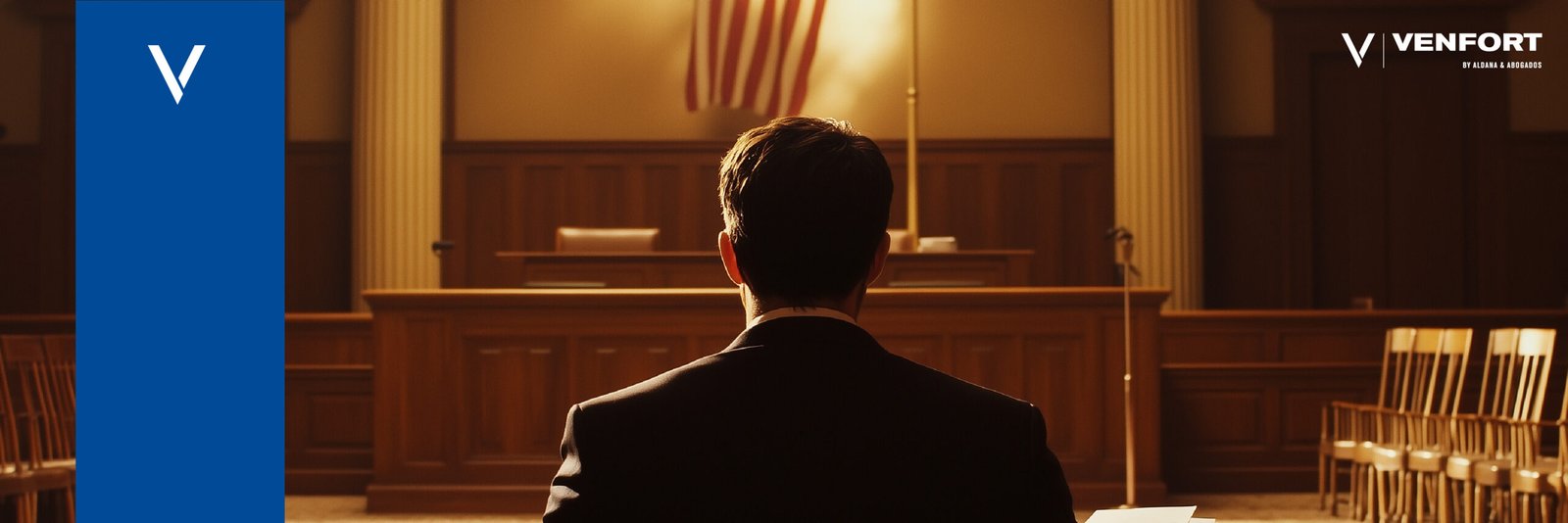The International Criminal Court (ICC) is the principal permanent international criminal court, responsible for trying persons accused of war crimes, crimes against humanity, genocide and crimes of aggression. For these crimes to be punishable, the evidence must be valid, sufficient and legally obtained. The treatment of evidence at the ICC differs substantially from national systems in terms of the admissibility, collection and evaluation of evidence.
This article, written from experience in international criminal defense before the ICC, explains how evidence is managed throughout the proceedings: from its collection to its final analysis, considering the rules of the Rome Statute and the Rules of Procedure and Evidence.
Regulatory framework: Rome Statute and procedural regulations
Testing at the ICC is regulated by:
- The Rome Statute (1998), the Court's founding treaty.
- The Rules of Procedure and Evidence, which develops aspects on admissibility and evaluation of evidence.
Unlike ad hoc international tribunals such as the ICTY or the ICTR, the ICC has consolidated rules that provide greater legal certainty to the parties to the proceedings.
Types of tests admitted
According to Article 69 of the Rome Statute, the Court may request and admit any type of evidence that is relevant and admissible. This gives the process a flexible character, far from formalism.
Among the most frequent tests before the ICC are:
- Oral testimony of victims, witnesses or experts.
- Written documentation: intelligence reports, correspondence, official files.
- Audiovisual evidence: photographs, videos, recordings.
- Expert evidence: forensic, medical, ballistic, anthropological.
- Previous witness statements.
- Digital evidence: emails, metadata, geolocation, electronic messaging.
Fundamental principles of evidence
- Freedom of proof: the Court does not limit the means of proof if they are relevant.
- Burden of proof: it is incumbent upon the prosecutor to prove guilt beyond reasonable doubt, although the defense may provide exculpatory or exculpatory evidence.
- Admissibility: irrelevant evidence, obtained unlawfully or in violation of the rights of the accused is excluded. The decision is casuistic and reasoned.
Obtaining evidence: challenges and guarantees
The collection of evidence in contexts of international crimes presents great difficulties: conflict zones, risk for witnesses, lack of judicial institutions.
The Prosecutor may:
- Field research, with state authorization;
- Request cooperation from States or international organizations;
- Activate victim and witness protection mechanisms.
All of this must guarantee respect for fundamental rights such as a fair trial and the presumption of innocence.
Victim and witness protection
Many testimonies before the ICC come from direct victims, so their protection is key.
The Victims and Witnesses Unit (VWU) of the ICC can:
- Guarantee the anonymity of the declarant;
- Implement relocation or security measures;
- Provide psychological or medical assistance.
This support makes it easier for victims to cooperate without fear of retaliation.
Evaluation of the test
The assessment of evidence is free but must be motivated. The judges explain:
- What evidence they consider conclusive;
- What tests are discarded and why;
- How they relate each piece of evidence to the defendant's conduct.
The conviction must be based on a conviction beyond reasonable doubt. In its absence, it is acquitted, as was the case with former President Laurent Gbagbo for lack of direct evidence.
Relevant jurisprudence
Illustrative examples of the use of evidence before the ICC:
- Lubanga case (D.R. Congo): the Court analyzed contradictions in testimonies and the use of evidence obtained by NGOs.
- Katanga case: forensic reports, electronic evidence and protected testimony were assessed.
- Al Mahdi case (Mali): numerous audiovisual evidence of destruction of cultural property was used.
These cases show the need for a joint, meticulous and respectful assessment of procedural guarantees.
Conclusion
The proper use of evidence before the ICC is crucial to the legitimacy of the process and the effective fight against impunity. The Court must combine investigative flexibility with rigorous respect for the rights of the accused.
In order to successfully participate in a proceeding before the ICC, whether as a victim or as an accused, it is essential to have a defense team specialized in International Criminal Law, with knowledge of the technical and human functioning of the Court.
Do you need advice before the International Criminal Court?
At Venfort Abogados we have experience in defense and representation before the ICC, advising both victims and defendants in complex international criminal justice contexts. We offer strategic, confidential and technical-legal support.













